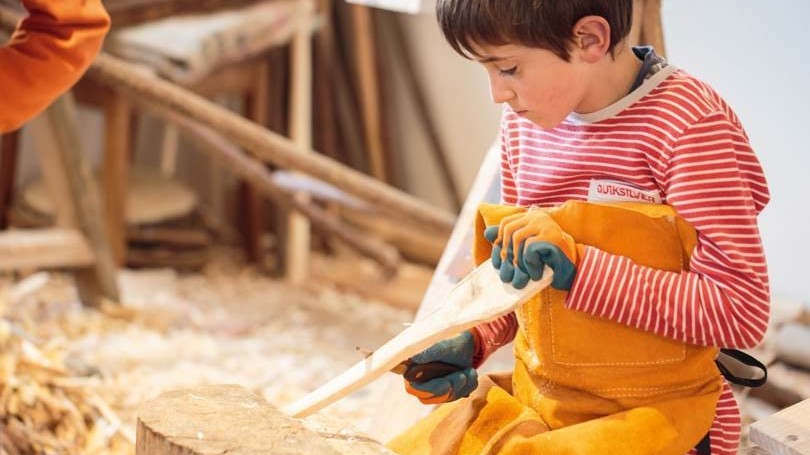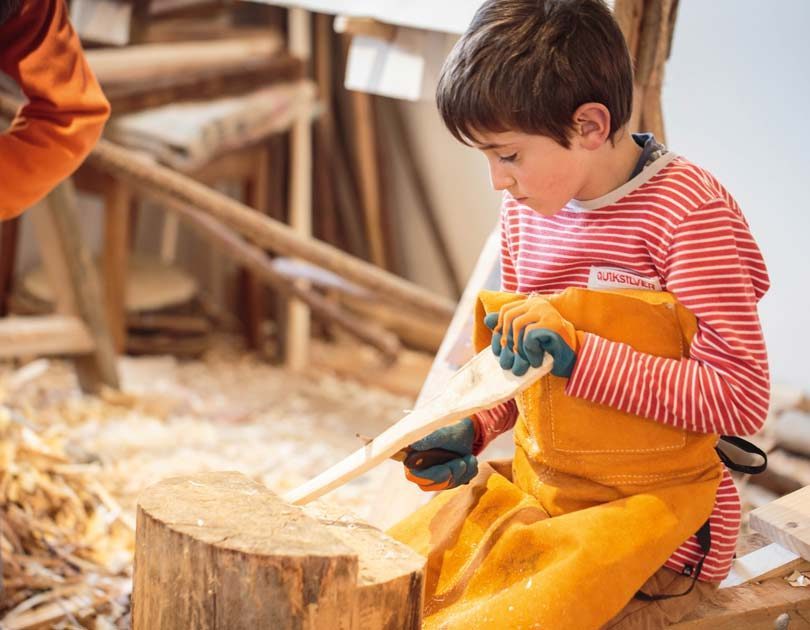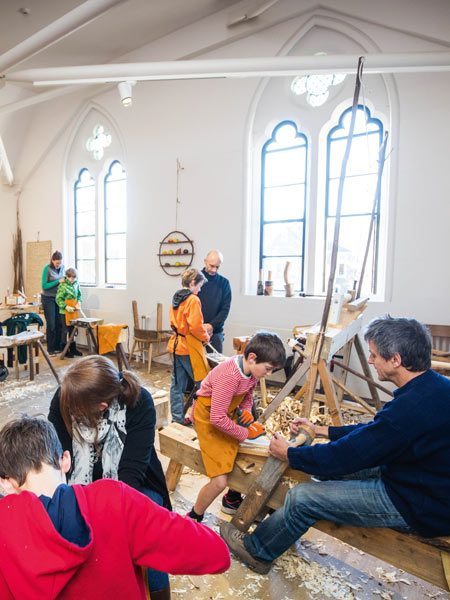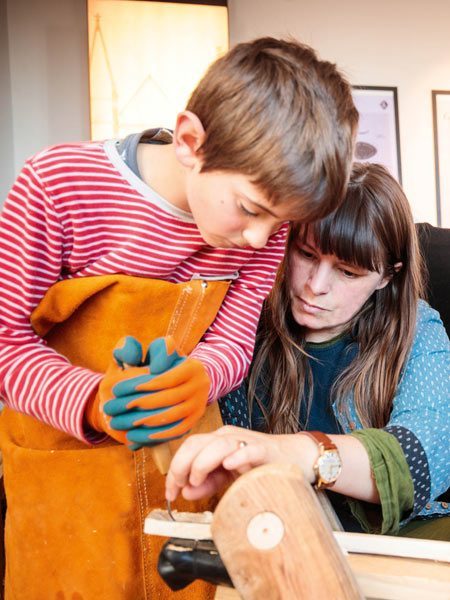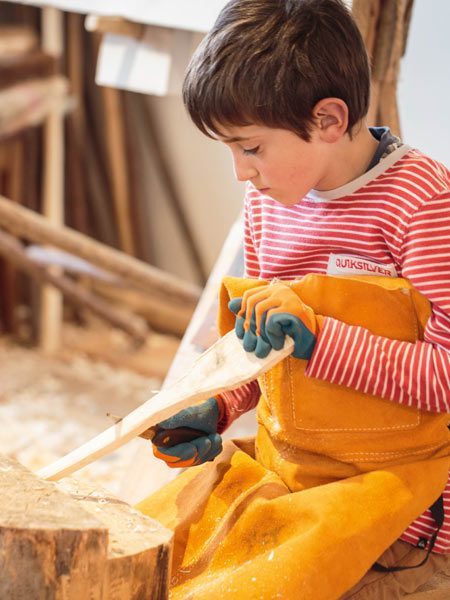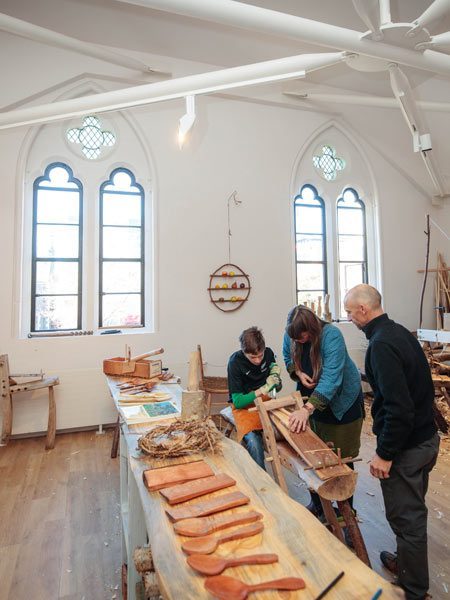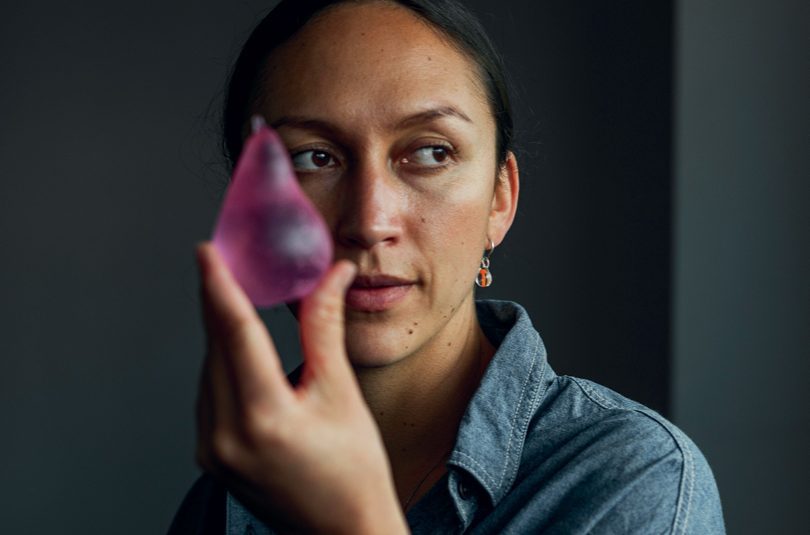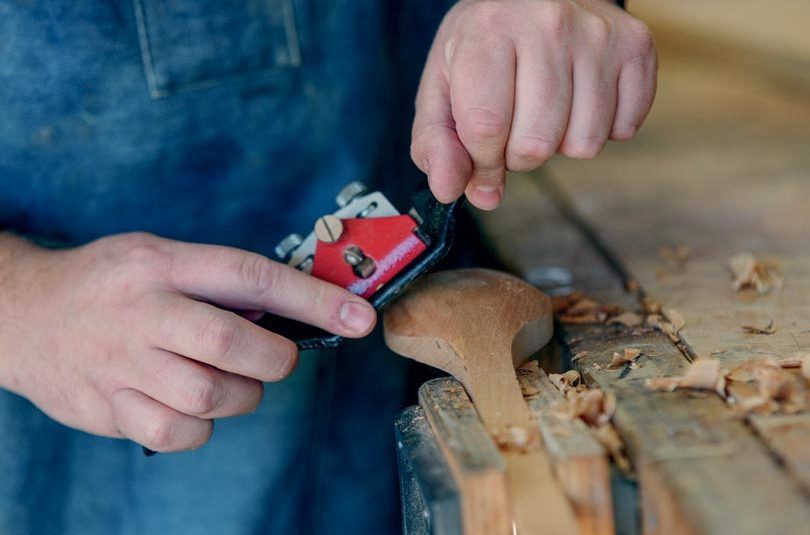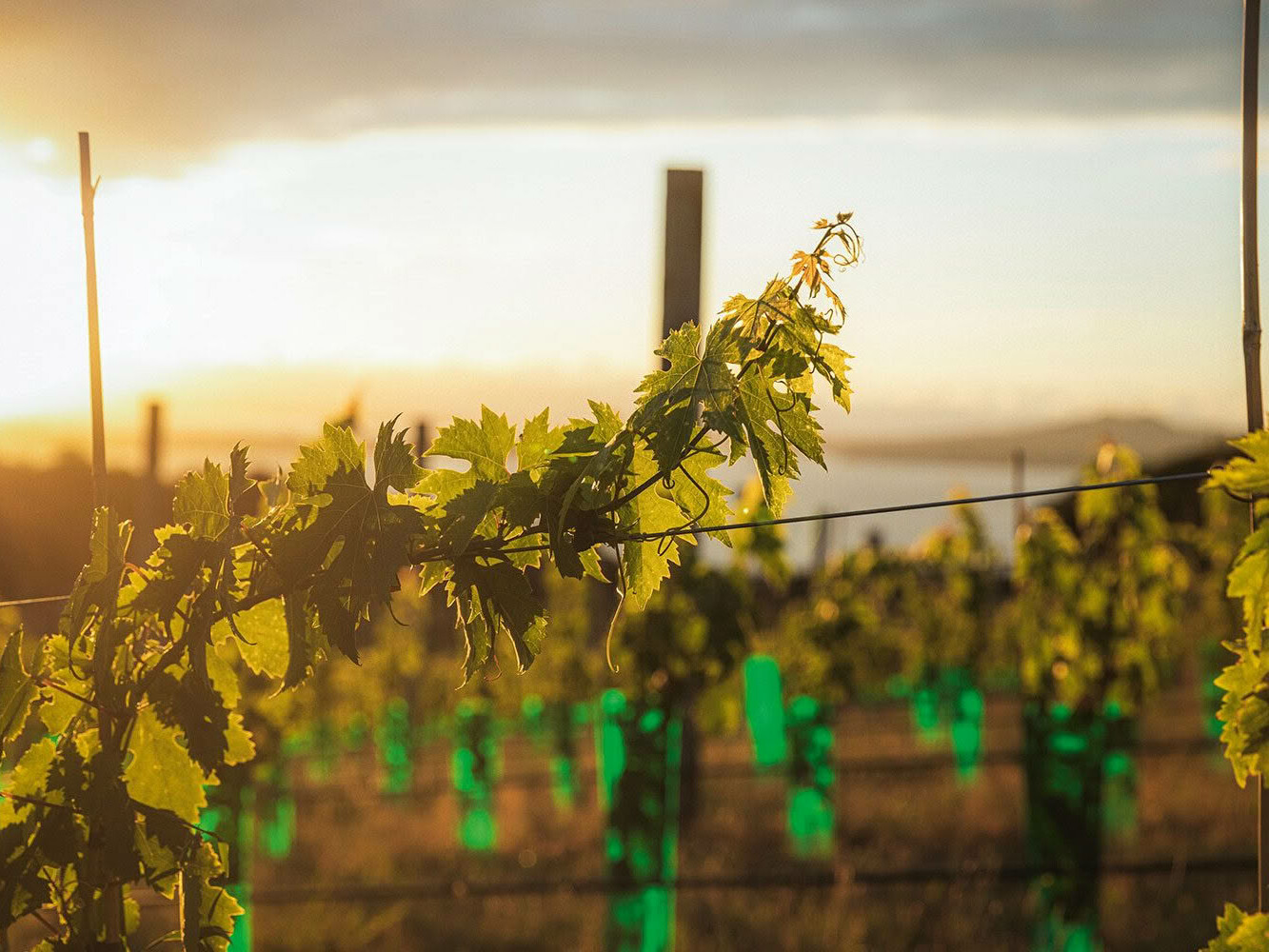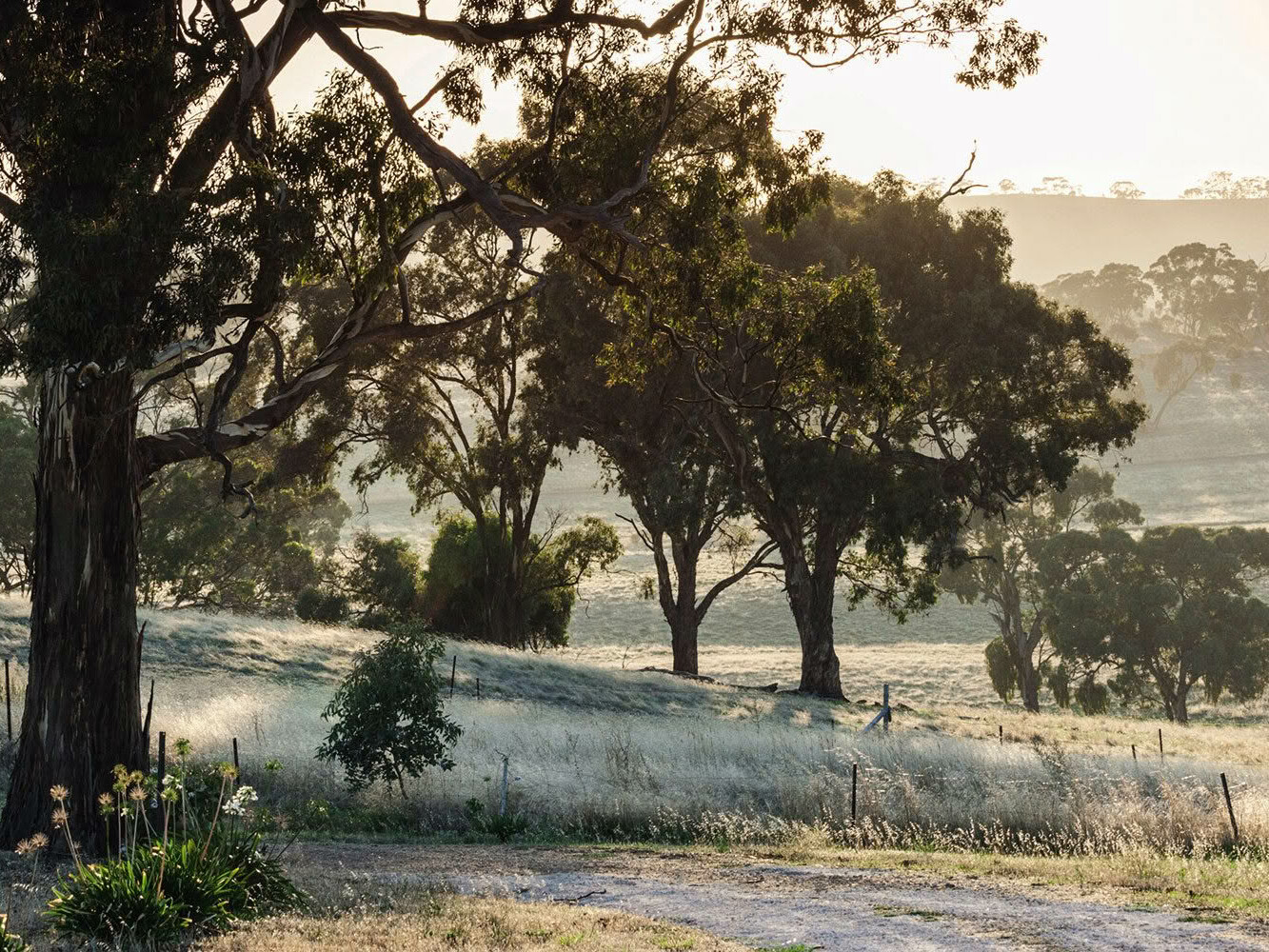Making something from nothing is a good use of resources and good for the soul, discovers TRACY WHITMEY.
When we are able to create what we need from what we have, we are resourceful. When we are resourceful we make the most of our own inner resources while living carefully in relation to the resources upon which we depend.
– JULIET ARNOTT, The Journal of Resourcefulness, Vol 1.
Several times a year Juliet Arnott’s ‘office’ is a woodland coppice, where she will spend the day teaching people to use hand tools to make a three-legged stool from green wood. She loves the woodland school setting, “It’s quite magical working out among the birds, they’re so curious they’ll come and sit on your boots. It’s a very special ‘other’ experience.”
Juliet is founder and director of Rekindle, a social enterprise with a mission to help people to reuse waste products. It is driven by the recognition that we consume far too much and produce too much waste, and that if we don’t change we will wreck the planet.
After many years tackling huge projects looking at wastefulness – including dismantling an entire house and making new products from the recovered materials – Juliet felt the need to refocus Rekindle and bring it to a more personal level. “We needed to think, ‘What is the opposite of wastefulness?’ The general public are not inspired by academic terms such as the circular economy and fundamental systematic adaptation. But resourcefulness is a much more approachable idea. People understand that you can’t lead a wasteful life and foster your inner resources at the same time
Juliet recognized that it can be confusing and complicated to live our lives according to the things we are not supposed to do and all the waste we should not create. So she decided to take a simpler approach: to teach people craft skills so that they can make what they need from what they have locally. Inspired by craft traditions and fuelled by her experience as an occupational therapist, Juliet now facilitates workshops in wooden-spoon carving, basket weaving, string and rope making and greenwood-furniture making. The classes use undervalued materials such as cabbage-tree leaves, flax leaves or green wood – freshly felled timber that would have otherwise been turned into wood chips. “People love that they can grab a handful of leaves that would have been thrown away and make something useful. Often it’s the first basket that they’ve ever made and it’s the first time that they have thought of these leaves in the context of a solid, hard basket.”
Few participants have any experience of these crafts. In particular, greenwood- working was not common in New Zealand, the skills overtaken by sawmilling . “Splitting and cleaving wood is part of the greenwood tradition. It captures the strength of working with the grain, rather than sawing across the grain,” says Juliet. “It’s a lovely tradition as it teaches people about trees and gives them a full appreciation of timber. It puts responsibility for the whole process onto the craftsperson.”
Even the coppice where the workshops are holds a message. “It looks unmanaged, but the history of the coppice speaks of woodland management and multi-species planting, which resonates today.”
When not working in the woods, classes are held in the Arts Centre in Ōtautahi, Christchurch. “It’s a beautiful space, very special and it’s celebratory to be allowed back into the building.” Here, small groups of 6-12 people gather to learn and kids have their own classes, too. During carving classes the floor is covered with wood chips and wood shavings from the hand tools, and the room smells of walnut oil and flaxseed oil. A complete beginner can learn to make rope in just a few hours, or take home a hand-carved spoon after half a day. “Most people come firstly to experience the craft,” says Juliet, “then they get the secondary delight of using what they’ve made when they get home, or giving it as a gift.”
She would love to find a local maker of the tools that are used, especially straight whittling knives and the curved hook knives used to shape the bowl of a spoon. “We know the skills are there, we just have to find the right people.”
From 8-17 November, 2018 Rekindle will host ‘Necessary Traditions’, a festival which will see 40 skilled craftspeople giving demonstrations and holding workshops of traditional crafts, including mandolin making, ceramics with local clays and pigments, letterpress and typesetting, shoe- making, preserving and fermenting, earth-building, reupholstery, blacksmithing, stonemasonry, book- binding and rag-rug making.
Juliet says, “What people really love is that the workshops focus on learning skills, rather than the acquisition of objects.” / rekindle.org.nz
Read More…
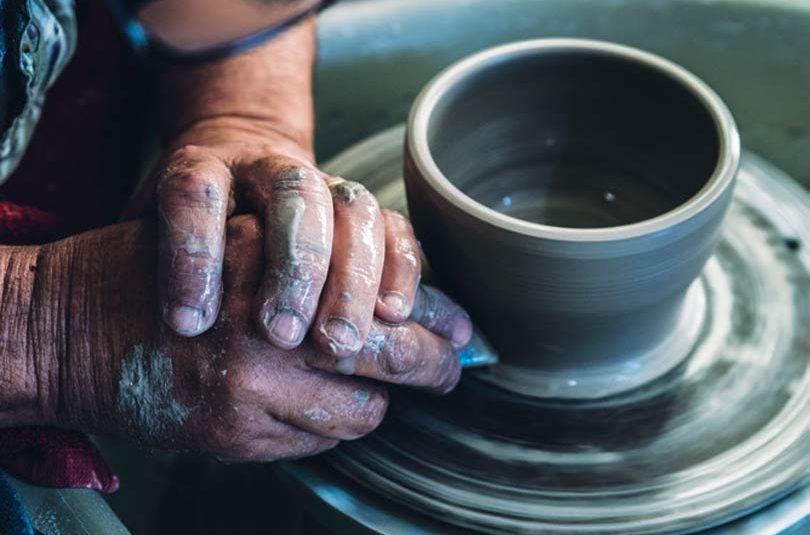
IN GOOD FORM
When Kate O'Sullivan put out a call to the members of her club to ‘ bring a plate’ it wasn’t a batch of sausage rolls or a tray of chicken wings that she had in mind.

